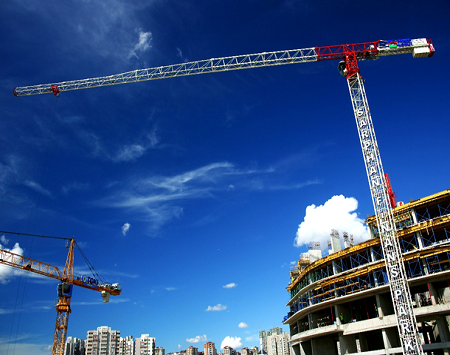Choosing the Right Commercial Contractor: Key Factors for Business Owners
 Selecting the right commercial contractor is crucial for the success of your business project. A well-chosen contractor ensures that the project is completed on time, within budget, and to the desired quality standards. Making an informed decision can prevent future complications and additional costs.
Selecting the right commercial contractor is crucial for the success of your business project. A well-chosen contractor ensures that the project is completed on time, within budget, and to the desired quality standards. Making an informed decision can prevent future complications and additional costs.
We’ve outlined key factors to consider when selecting a contractor to assist business owners in this important choice. By evaluating these aspects, you can make a decision that aligns with your project’s goals and requirements.
Experience and Expertise
A contractor’s experience strongly indicates their capability to handle your project. Look for contractors who have successfully completed similar projects in your industry. Their expertise will help them navigate potential challenges and implement effective solutions. For instance, if you’re planning to build a hospitality venue, a commercial contractor with experience in hospitality construction will understand the specific requirements and standards involved. This specialized knowledge contributes to a smoother project execution.
Licensing and Insurance
Ensuring that the professionals hold the necessary licenses and insurance is crucial. Proper licensing confirms that they meet local regulatory requirements, while insurance protects you from potential liabilities during the project. Before finalizing your decision, request proof of licensing and insurance. This verification safeguards your business and ensures compliance with legal standards.
Reputation
Researching the reputation of building companies is essential. Client testimonials and reviews provide insights into a contractor’s reliability and quality of work. Positive feedback from previous clients indicates a trustworthy contractor. Reliable commercial building companies like Horner Building Company deliver high-quality services and are committed to client relationships. Their focus on project excellence and client satisfaction sets them apart in the industry.
Financial Stability
A contractor’s financial health affects their ability to manage project costs and timelines. A financially stable contractor is more likely to have the resources to handle unforeseen expenses and maintain project momentum. Assessing financial stability can involve reviewing financial statements or discussing their approach to managing project finances. This evaluation helps ensure that the contractor can sustain the project from start to finish.
Project Management Approach
Understanding a contractor’s project management style is important for collaboration. Effective communication, scheduling, and resource allocation are key components of successful project management. Discuss how the contractor plans to manage your project, including their communication protocols and timeline management. A clear and organized approach indicates a contractor who can deliver results efficiently.
Quality of Workmanship
The quality of a contractor’s previous projects strongly indicates what you can expect for your own. Business owners should review a contractor’s past work to assess the level of craftsmanship and attention to detail. Examining completed projects in person or reviewing a portfolio of past work can provide insight into the contractor’s standards. A professional committed to quality will also use durable materials and skilled labor to ensure the final result meets expectations. Checking for industry certifications and warranties can also indicate their dedication to delivering a high standard of work.
Safety Record
A strong safety record is an essential factor when choosing a contractor. Poor safety practices can lead to delays, legal issues, and higher costs due to accidents and injuries. Reviewing a contractor’s safety policies, past violations, and training programs will help ensure they prioritize a safe work environment. Business owners should ask about the contractor’s safety certifications, OSHA compliance, and incident history. A company that values safety protects its workers and ensures that your project stays on schedule without unnecessary setbacks.
Subcontractor Relationships
Many contractors rely on subcontractors to complete specialized aspects of a project, such as electrical work, plumbing, or finishing touches. The quality and reliability of these subcontractors can impact the project’s overall success. Before hiring a contractor, ask about the subcontractors they work with and how they manage these relationships. A contractor with a trusted network of skilled subcontractors is more likely to maintain consistency in quality and meet project deadlines efficiently.
Transparency in Pricing
Unexpected costs can disrupt a project and strain a business’s budget. A reliable professional should provide clear, detailed estimates outlining labor, materials, and additional fees. Transparency in pricing helps business owners plan effectively and avoid surprises during construction. It’s also beneficial to compare bids from multiple contractors to ensure fair pricing. While the lowest bid may be tempting, weighing cost against quality and reliability is essential to make the best decision for long-term success.
Contract Terms and Warranties
Before finalizing an agreement, business owners should carefully review the contract terms. This includes project scope, timelines, payment schedules, and warranty details. A well-structured contract protects both parties and ensures that expectations are clearly defined. Warranties are another important consideration. A reputable contractor will stand behind their work and offer warranties on materials and labor. Clarifying these terms upfront provides peace of mind and safeguards against potential future issues.
Choosing the right commercial contractor is a crucial decision that can significantly impact a project’s success. Business owners can make informed choices by carefully evaluating experience, reputation, financial stability, project management, and quality of work.